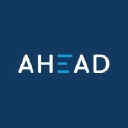We are seeking a FinOps & DevOps Engineer to drive cloud cost efficiency, automation, and governance across diverse multi-cloud environments (AWS and Azure). This role is central to enhancing cost visibility, accountability, and optimization while implementing automation and DevOps best practices across major public cloud platforms. You will collaborate with cloud engineering and finance stakeholders to standardize tagging, build dashboards, develop automated workflows, and advance FinOps as a Service — integrating cloud cost management, CI/CD automation, and cost tracking to achieve operational excellence and financial transparency.
Key Responsibilities
Cost Visibility & Allocation Develop and maintain cost allocation, budgeting, and chargeback models across cloud accounts (AWS, Azure). Implement and enforce tagging and resource hierarchy standards, ensuring >90% coverage for cost-critical tags (e.g., Application, Environment, Cost Center). Build and publish cost visibility dashboards and reports using Power BI, QuickSight, Looker, or other FinOps tooling. Support unified multi-cloud cost reporting and forecasting for engineering and finance teams. Optimization & Engineering Execute rightsizing, scheduling, and lifecycle management of cloud resources across AWS and Azure (EC2, VM, GCE, RDS, S3, Storage, Networking). Manage and optimize Reservations, Savings Plans, Committed Use Discounts (CUDs), and licensing benefits (BYOL, AHB). Implement policy-as-code and governance using tools like Terraform, AWS Config and Azure Policy Organization Policies. Participate in anomaly detection, spend forecasting, and automation of remediation workflows. Contribute to CI/CD pipeline management, infrastructure automation, and GitOps practices using Azure DevOps, GitHub Actions, AWS CodePipeline, or Google Cloud Build. Operate & Partner Provide actionable insights in monthly cost and performance reviews with engineering and product stakeholders. Partner with Finance and Procurement teams on budgeting, forecasting, and billing validation. Collaborate with SRE and Platform teams to balance cost efficiency, performance, and reliability. Maintain operational hygiene through scripting, compliance audits, and automation. Core Tech Stack Cost & Governance: AWS Cost Explorer, Budgets, and Config; Azure Cost Management + Billing; Billing Reports; FinOps tools such as Apptio Cloudability, CloudHealth, Kubecost, or Harness CCM. Observability & Data: CloudWatch, Azure Monitor, Stackdriver, Log Analytics, Power BI, QuickSight, Looker. Infrastructure as Code & Automation: Terraform, CloudFormation, Bicep, Deployment Manager, Azure DevOps, GitHub Actions, AWS CodePipeline, Ansible, PowerShell, Python. Cloud Services Exposure: AWS: EC2, RDS, S3, Lambda, EKS, CloudWatch. Azure: VMs, App Services, Storage, Azure SQL, AKS, Databricks.
Qualifications
3–6 years of experience in Cloud Engineering, Platform Operations, DevOps, or SRE, with 1–2 years in FinOps or Cloud Cost Optimization. Hands-on experience with two or more major public clouds (AWS, Azure, GCP). Proven skills in tagging strategy, cost reporting, and optimization techniques. Familiarity with Reservations, Savings Plans, Committed Use Discounts, and rightsizing. Experience with data visualization and reporting tools (Power BI, QuickSight, Looker). Scripting proficiency (PowerShell, Python, or similar). Exposure to Infrastructure as Code tools (Terraform, CloudFormation, Bicep) and DevOps automation. Preferred Certifications: FinOps Certified Practitioner, AWS Solutions Architect – Associate, AZ-104, Google Cloud Engineer, or equivalent.
Top Expectations for an L2 Engineer
Execute tagging, cost optimization, and reporting activities under senior guidance. Maintain accurate dashboards and deliver actionable cost insights. Assist in implementing automation scripts, policy-as-code, and optimization playbooks. Drive cost-awareness and accountability across engineering teams. Contribute to SOPs and operational documentation.
Sample KPIs / OKRs
Achieve 10–15% cost savings across assigned workloads. Maintain RI/SP/CUD coverage ≥ 60% with optimal utilization. Sustain ≥ 90% tagging compliance. Respond to cost anomaly alerts within defined SLAs.
Nice-to-Haves
Experience with multi-account, multi-project chargeback/showback models. Exposure to hybrid environments or container platforms (VMware, Kubernetes). Understanding of enterprise billing structures and consolidated invoicing models. 